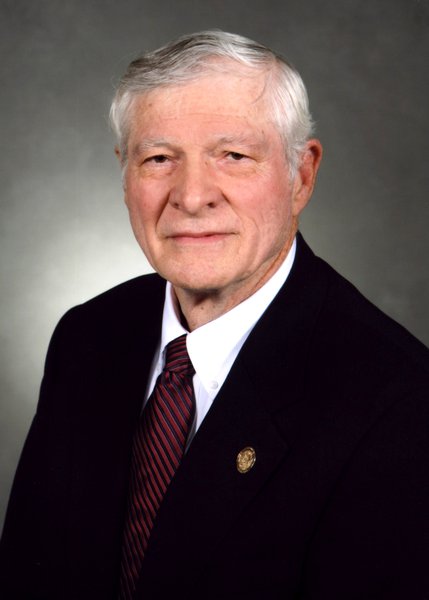
Class XX
Harold Loyd “Hal” Lewis
Dr. H.L. Lewis’ impact on theU.S.cotton industry cannot be overstated. His research led to the development of the cotton module builder, development of Boll Weevil Eradication technology and the micronaire test procedure to help producers determine the best time to defoliate and harvest their cotton. As a plant breeder, he introduced three cotton varieties, four commercial soybean varieties and two commercial grain sorghum hybrids. Born inManila(MississippiCounty), Lewis graduated fromDellHigh Schoolin 1952 and served in the U.S. Army from 1956-62. He later earned a bachelor’s degree from Texas A&M, a master’s degree at theUniversityofHouston, and a Ph.D. from theUniversityofArkansas. He also did post-doctoral training at the University of California-Berkeley. He served as a professor atTexasTechUniversity, as manager of physiology and biochemistry research for the National Cotton Council, and as director of research at Cotton Incorporated. He additionally served as an instructor atNorth CarolinaStateUniversity, theUniversityofTennessee, andArkansasStateUniversity. He currently serves as president and general manager of Scientific Seed Co., H.L Lewis Farm and Hal Lewis Enterprises. In 1961, he received the O.B. Williams Award from the American Society of Microbiology. In 1992, he was named Man of the Year in Service to Arkansas Agriculture by Progressive Farmer magazine. He earned the Arkansas Cotton Achievement Award, and earned a Top 10 in Textile Industry Award in 1995 from Textile World. He is a past president of the Agricultural Council of Arkansas, where he still serves as a member of the board of directors. He has served as Chairman of theArkansasunit of the National Cotton Council, as a member of the Arkansas Soybean Promotion Board, on the technical committee of the National Cotton Council, and as a member of the Secretary of Agriculture’s Advisory Committee for Cotton Classing and Marketing. Additionally, he has served as a member of the board of the National Cotton Council, the Arkansas Alternative Fuels Commission and as a member of the Secretary of Agriculture’s Advisory Committee on Universal Cotton Standards. He has written more than 100 technical papers, several review articles, technical manuals and textbook chapters, as well as more than 100 articles and editorials on agricultural research.
